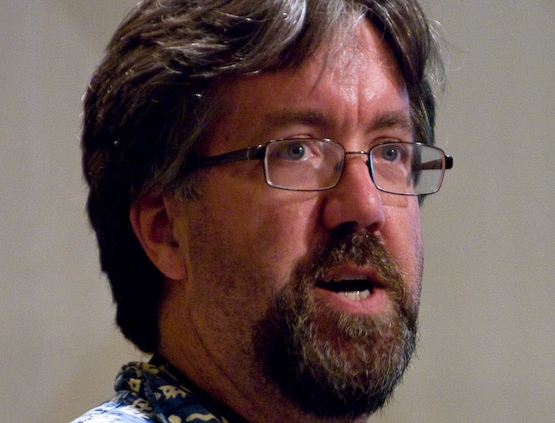SABR announces 2014 Henry Chadwick Award recipients
The Society for American Baseball Research is pleased to announce the 2014 recipients of the Henry Chadwick Award, established to honor the game’s great researchers—historians, statisticians, annalists, and archivists—for their invaluable contributions to making baseball the game that links America’s present with its past.
The 2014 recipients of the Henry Chadwick Award are:
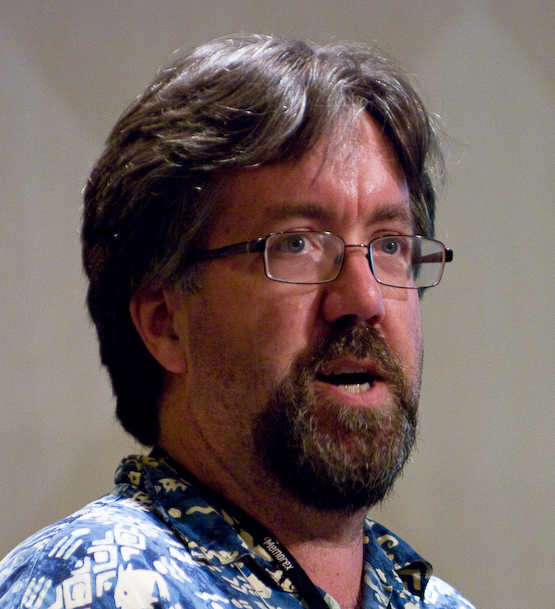 Mark Armour (1960- ): Mark Armour has been a SABR member for more than 30 years, and one of the organization’s leading lights for at least half that time. In 2002, Armour spearheaded the formation of SABR’s Baseball Biography Project — which has now contributed more than 2,500 biographical articles and a number of books to the game’s literature — and has served as the BioProject’s director ever since. In 2008, Mark received the Bob Davids Award, SABR’s highest individual honor. His books include Paths to Glory: How Great Baseball Teams Got That Way (2003 with Dan Levitt), which won a Sporting News-SABR Baseball Research Award) and Joe Cronin: A Life in Baseball (2010), which was a finalist for the Seymour Medal. A native New Englander and devoted Red Sox fan, Armour has lived for many years in the Pacific Northwest with his wife and two children.
Mark Armour (1960- ): Mark Armour has been a SABR member for more than 30 years, and one of the organization’s leading lights for at least half that time. In 2002, Armour spearheaded the formation of SABR’s Baseball Biography Project — which has now contributed more than 2,500 biographical articles and a number of books to the game’s literature — and has served as the BioProject’s director ever since. In 2008, Mark received the Bob Davids Award, SABR’s highest individual honor. His books include Paths to Glory: How Great Baseball Teams Got That Way (2003 with Dan Levitt), which won a Sporting News-SABR Baseball Research Award) and Joe Cronin: A Life in Baseball (2010), which was a finalist for the Seymour Medal. A native New Englander and devoted Red Sox fan, Armour has lived for many years in the Pacific Northwest with his wife and two children.
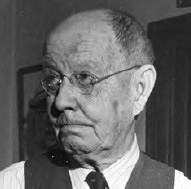 Ernie Lanigan (1873-1962): “No man, living or dead, did as much for baseball research as the diligent, untiring, ever-searching Ol’ Ernie,” said Fred Lieb, himself a Henry Chadwick Award honoree. Ernest John Lanigan, known to all as Ernie, was born in Chicago on January 4, 1873. He got his first job in baseball at age 15, when he went to work for his uncles, Al and Charles Spink, founders of The Sporting News. Except for eight years working in a bank, Lanigan spent the rest of his life in baseball. At various times he worked for the New York Press, the Cleveland Leader, the St. Louis Cardinals, and the International League. He is credited with publishing baseball’s first encyclopedia, in 1922, which he updated annually through 1933. He compiled RBI statistics for 1907-19 and Caught Stealing data for 1912-19 at a time when no was else was doing so. From 1946 until his retirement in 1959, Lanigan served as the curator of the National Baseball Hall of Fame and Museum and later as its historian. He died in Philadelphia on February 6, 1962.
Ernie Lanigan (1873-1962): “No man, living or dead, did as much for baseball research as the diligent, untiring, ever-searching Ol’ Ernie,” said Fred Lieb, himself a Henry Chadwick Award honoree. Ernest John Lanigan, known to all as Ernie, was born in Chicago on January 4, 1873. He got his first job in baseball at age 15, when he went to work for his uncles, Al and Charles Spink, founders of The Sporting News. Except for eight years working in a bank, Lanigan spent the rest of his life in baseball. At various times he worked for the New York Press, the Cleveland Leader, the St. Louis Cardinals, and the International League. He is credited with publishing baseball’s first encyclopedia, in 1922, which he updated annually through 1933. He compiled RBI statistics for 1907-19 and Caught Stealing data for 1912-19 at a time when no was else was doing so. From 1946 until his retirement in 1959, Lanigan served as the curator of the National Baseball Hall of Fame and Museum and later as its historian. He died in Philadelphia on February 6, 1962.
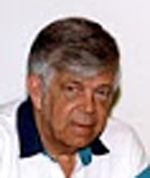 Marc Okkonen (1933- ): Much of what we know about the history of baseball uniforms we owe to Marc Okkonen. A public relations consultant, freelance artist and writer professionally, Okkonen exhaustively cataloged major league uniforms dating back to 1900, research he turned into a groundbreaking book, Baseball Uniforms of the 20th Century: The Official Major League Baseball Guide. Okkonen also produced a series of books titled Baseball Memories using a distinctive collection of photographs and illustrations to capture various decades in the twentieth century. Additionally, Okkonen authored the first book on the Federal League, an achievement and resource that stands the test of time with a matchless collection of photographs, ballpark information and drawings, and front office and roster information. Okkonen also created the invaluable 2,000 Cups of Coffee, containing images of players whose major league careers lasted for 10 or fewer games during the 1900-1949 era. By following his curiosity and pursuing his passion, Marc Okkonen left baseball researchers with a singular legacy.
Marc Okkonen (1933- ): Much of what we know about the history of baseball uniforms we owe to Marc Okkonen. A public relations consultant, freelance artist and writer professionally, Okkonen exhaustively cataloged major league uniforms dating back to 1900, research he turned into a groundbreaking book, Baseball Uniforms of the 20th Century: The Official Major League Baseball Guide. Okkonen also produced a series of books titled Baseball Memories using a distinctive collection of photographs and illustrations to capture various decades in the twentieth century. Additionally, Okkonen authored the first book on the Federal League, an achievement and resource that stands the test of time with a matchless collection of photographs, ballpark information and drawings, and front office and roster information. Okkonen also created the invaluable 2,000 Cups of Coffee, containing images of players whose major league careers lasted for 10 or fewer games during the 1900-1949 era. By following his curiosity and pursuing his passion, Marc Okkonen left baseball researchers with a singular legacy.
- Cory Schwartz (1969- ):
 Acknowledging Cory Schwartz with the honor of a Chadwick Award is a recognition of his critical role in fostering the bonanza of independent research within SABR and without through PITCHf/x data. He has been with Major League Baseball Advanced Media since January 2001, overseeing the team responsible for live data capture for the official stats for all MLB, minor league and winter league baseball games. His group operates the PITCHf/x system, which provides pitch trajectory, velocity and location data for all games played in MLB venues, and is working on the development and eventual roll-out of the FIELDf/x system, which will track all moving objects on the field: fielders, runners, umpires, etc. Schwartz’s role in making the data produced via PITCHf/x available not only set an example worthy of SABR’s commitment to sharing primary source material, it engendered a revolution in the reach of publicly accessible sabermetric research. Prior to joining MLBAM, Schwartz also worked for the New York Yankees (Media Relations, 1992-93) and the National Basketball Association (NBA.com, 1994-1999.)
Acknowledging Cory Schwartz with the honor of a Chadwick Award is a recognition of his critical role in fostering the bonanza of independent research within SABR and without through PITCHf/x data. He has been with Major League Baseball Advanced Media since January 2001, overseeing the team responsible for live data capture for the official stats for all MLB, minor league and winter league baseball games. His group operates the PITCHf/x system, which provides pitch trajectory, velocity and location data for all games played in MLB venues, and is working on the development and eventual roll-out of the FIELDf/x system, which will track all moving objects on the field: fielders, runners, umpires, etc. Schwartz’s role in making the data produced via PITCHf/x available not only set an example worthy of SABR’s commitment to sharing primary source material, it engendered a revolution in the reach of publicly accessible sabermetric research. Prior to joining MLBAM, Schwartz also worked for the New York Yankees (Media Relations, 1992-93) and the National Basketball Association (NBA.com, 1994-1999.)
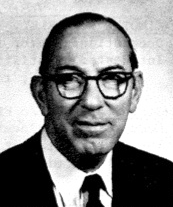 John C. Tattersall (1910–1981): John Tattersall was a great authority on home runs and early baseball records. His scrapbooks of multiple box scores for nearly every game from 1876 to 1890 proved vital for three generations of baseball encyclopedia: Turkin-Thompson in 1951, ICI/Macmillan in 1969, and Total Baseball in 1989. His day-by-day records have been lost, but what has survived is a batting and fielding summary and a pitching summary for each club in each year. Tattersall first gained national attention for his baseball research with his correction of Nap Lajoie’s 1901 batting average from .405 to .422 (later accepted as .426.) He found disputed hits in Cap Anson’s record for 1879; compiled pinch-hit, hit by pitcher, and batters-facing-pitcher records where none had existed before; and established the monumental Home Run Log, which SABR purchased shortly after his death and, under the aegis of Bob McConnell and David Vincent, has continued to update.
John C. Tattersall (1910–1981): John Tattersall was a great authority on home runs and early baseball records. His scrapbooks of multiple box scores for nearly every game from 1876 to 1890 proved vital for three generations of baseball encyclopedia: Turkin-Thompson in 1951, ICI/Macmillan in 1969, and Total Baseball in 1989. His day-by-day records have been lost, but what has survived is a batting and fielding summary and a pitching summary for each club in each year. Tattersall first gained national attention for his baseball research with his correction of Nap Lajoie’s 1901 batting average from .405 to .422 (later accepted as .426.) He found disputed hits in Cap Anson’s record for 1879; compiled pinch-hit, hit by pitcher, and batters-facing-pitcher records where none had existed before; and established the monumental Home Run Log, which SABR purchased shortly after his death and, under the aegis of Bob McConnell and David Vincent, has continued to update.
By honoring individuals for the length and breadth of their contribution to the study and enjoyment of baseball, the Chadwick Award will educate the baseball community about sometimes little known but vastly important contributions from the game’s past and thus encourage the next generation of researchers.
The criteria for the award reads in part: The contributions of nominees must have had public impact. This may be demonstrated by publication of research in any of a variety of formats: books, magazine articles, websites, etc. The compilation of a significant database or archive that has facilitated the published research of others will also be considered in the realm of public impact.
For a complete list of Chadwick Award winners, click here.
Originally published: February 4, 2014. Last Updated: February 4, 2014.


